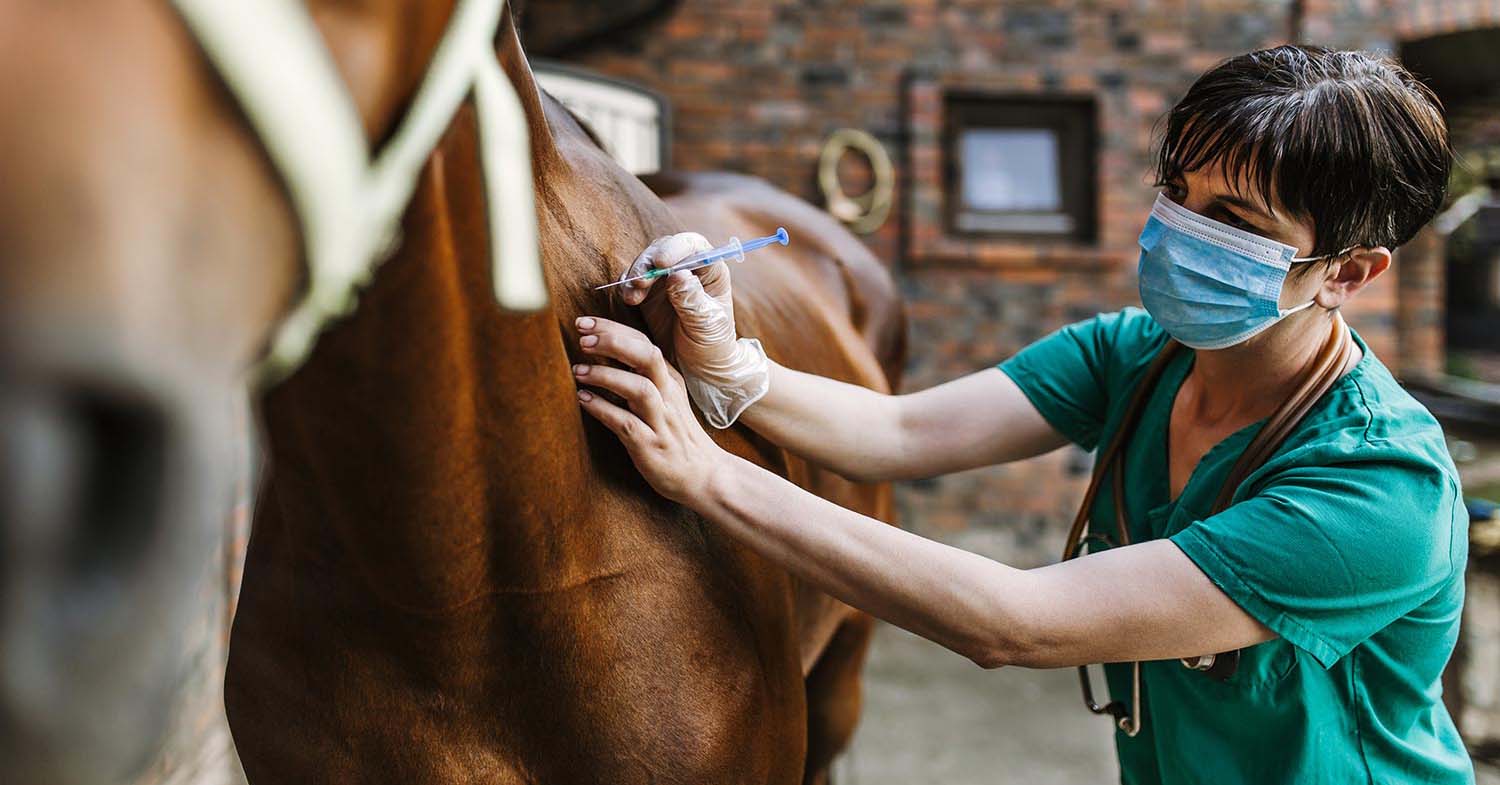Preventive health
From preventing disease through vaccination and worming, to the role of yard health plans and engaging owners.
Jacqui Matthews weighs up the equine worming options for vets and clients.
The bacterial disease can affect any horse in any yard, and can bring serious financial implications as well as health and welfare concerns. Here, the author looks at the current situation and future outlook.
Jacqui Matthews BVMS, PhD, FRSB, FRSE, FRCVS, offers practical points for veterinarians to offer to clients, including anthelmintic resistance messages.
Victoria Colgate MA, VetMB, MSc, MRCVS and Richard Newton BVSc, MSc, PhD, FRCVS explore the measures taken to stop the spread of this venereal disease.
Andrew S Waller outlines how this disease is spread around liveries and how veterinarians can help to eradicate it using new medicines.
Jacqueline Matthews discusses how to test for – and treat – common parasitic infections in horses.
Victoria Colgate and Richard Newton discuss barriers to vaccine uptake among owners.
Zoë Gratwick explains how and why professionals should work with owners to prevent this burgeoning one health issue.
A bacterial equid disease predominately of the upper respiratory tract, strangles biosecurity and identifying infectious horses are key to preventing it. Development of a novel vaccine has added to the equine vet’s toolbox – as Philip Ivens explains.
Jamie Prutton outlines common conditions in horses, and how to test for and treat them.
David Rendle outlines how veterinary professionals, and clients, can treat and reduce these common parasitic infections in horses.
Leticia Macias Bricio describes clinical signs, diagnosis and disease prevention, as well as outbreak management and surveillance efforts.
While currently a low risk to the UK, an outbreak of this virus would have severe consequences. With that in mind, Mathhew Robin explains the control plans in place and considers the UK’s ability to implement it if required.
Laura Peachey discusses treatment and management of parasite burdens, including latest resistance guidance, in horses.
Fleur Whitlock and Richard Newton discuss the effective use of this preventive measure against endemic and emerging infectious diseases.
With three-quarters of horse owners wanting to know more about preventive health care, according to one survey, opportunities for vets to provide more information do exist. In this piece, Zoë Gratwick provides practical advice that can be passed on to horse owners on parasite prevention.
Imogen Johns discusses conditions that can cause significant welfare issues in affected horses, with a look at clinical signs, treatment and prevention.
Janet Littlewood discusses the second most common allergic skin disease in horses, which can present a diagnostic and therapeutic challenge.
Adele Williams covers considerations for equine parasite control, taking into account what is currently known about anthelmintic resistance in UK equine parasites.
Adele Williams looks at some of the most important aspects of preventive medicine, with particular emphasis on vaccination and parasite control.

